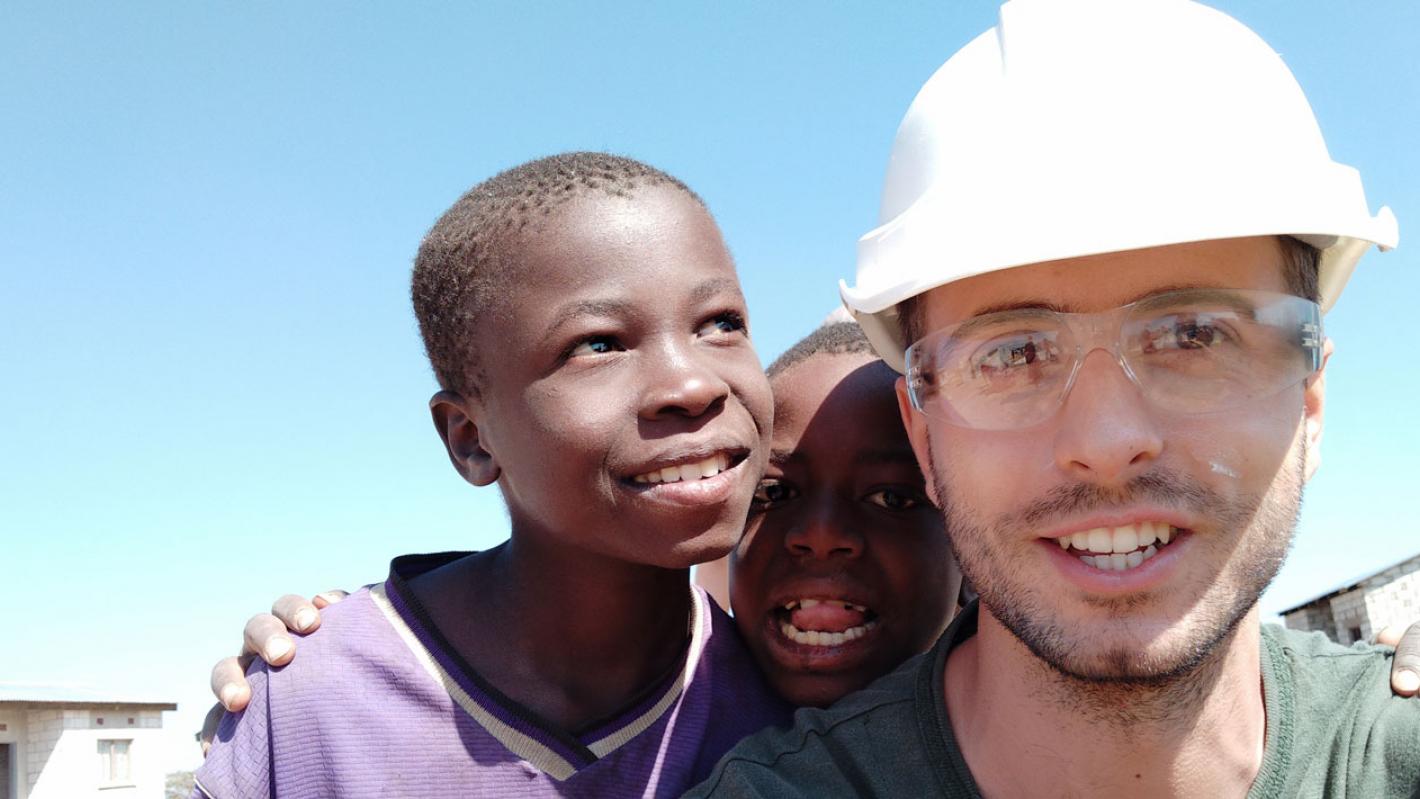
Jorge Castrillo pictured with two children waiting to move into their new home in Kabwe, Zambia.
ROD’s Jorge Castrillo describes his experience of working on a Habitat for Humanity project in Zambia
I have just returned from Zambia, where I spent two weeks working with a team of volunteers from Engineers Without Borders on a Habitat for Humanity Ireland housing project in the Central Province town of Kabwe.
Zambia is one of the poorest countries in the world, with close to 64% of the population living on less than $2 a day. The national housing deficit stands at 1.5 million units and is projected to double by 2030, according to UN HABITAT.
Located 100km north of the capital Lusaka, Kabwe was once a thriving town of 220,000 people. Almost a century of lead mining and smelting has, however, left a terrible legacy, and it is now the world’s most toxic town, according to pollution experts.
One of the most vulnerable regions in Kabwe is Makalulu, where access to schools and healthcare facilities is often limited, and many families live below the poverty line.
As one of group of 19 dedicated volunteers, my job was to assist in the build of two, three-room houses for two low-income families. Our team was supported throughout the build process by a local contractor who had, thankfully, completed the house foundations prior to our arrival.
Each house had a total area of 30m2 and was built with concrete blocks, timber roof trusses and aluminium roofing sheets. An outdoor latrine was built for each house because it was not possible to provide access to a sewerage system, water supply or electricity as part of the project.
All the work undertaken was manual, which made mixing the concrete and mortar for the blocks particularly challenging. It required a team of dedicated locals filling water barrels from the nearest well and rolling them, one at a time, to the construction site, before mixing the concrete by hand.
During our lunch breaks, we headed to a nearby Habitat home, where a team of locally employed women cooked a wide selection of meals for us on simple cooking stoves.
When the last day of the build came and the houses were ready for handover, the celebrations began. Speeches were made, songs were sung, and together with the two families and their new neighbours, we danced until late into the evening. It was a moment of pure joy that reminded me of the strength of the human spirit and the power of hope.
I would like to thank Engineers Without Borders Ireland, Habitat for Humanity Ireland and Roughan & O’Donovan for giving me the opportunity to participate in such a challenging and rewarding project.
Habitat for Humanity works in partnership with vulnerable, low-income families in the poorest parts of Zambia to improve their living conditions.
Due to the lack of affordable housing, about 70 percent of urban dwellers in the country live in unplanned settlements with inadequate access to safe and clean water, sanitation and extension facilities.
